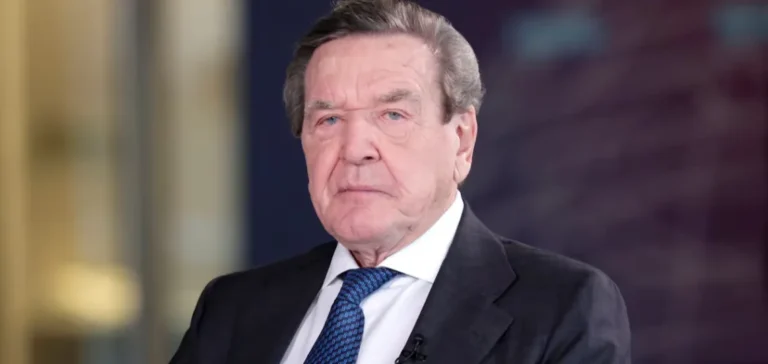Former Chancellor Gerhard Schröder defended the construction of the Nord Stream 2 pipeline linking Russia to Germany during a parliamentary hearing focused on political and financial ties between Berlin and Moscow. At 81, the former leader testified via videoconference from Hanover before the Mecklenburg-Vorpommern state parliament commission. The inquiry aims to determine the role of regional authorities and political backers in the project amid ongoing energy and diplomatic tensions.
A project framed as strategic for German energy supply
Gerhard Schröder, chairman of the board of directors of Nord Stream 2 AG since 2016, stated that the construction of Nord Stream 1 and 2 pipelines remained “justified”. According to him, these infrastructures were intended to secure Germany’s supply of Russian natural gas “at reasonable prices”, supporting the country’s transition away from nuclear and coal. He noted that energy cooperation between Berlin and Moscow was based on decades of “proven” economic relations, which he described as part of a “policy of peace”.
Questions raised over Russian funding and sanctions circumvention
Members of parliament questioned the former chancellor on the creation, in 2021, of a regional foundation labelled “for climate protection”, suspected of receiving EUR20mn (approximately $21.5mn) in Russian funds to ensure the pipeline’s completion despite the threat of US sanctions. Gerhard Schröder acknowledged that this entity had enabled the continuation of the project while avoiding international obstruction.
An inquiry marked by tension and unresolved issues
As the hearing progressed, Gerhard Schröder appeared increasingly irritated by some lawmakers’ questions, which he described as “ridiculous”. At times, he cited memory lapses or responded with humour, while maintaining that Nord Stream 2 was a rational choice for Germany’s energy security. Since the project was abandoned in 2022, following the outbreak of war in Ukraine and subsequent explosions damaging the pipelines in the Baltic Sea, political pressure has increased around the former chancellor, known for his ties to Russian President Vladimir Putin. Other officials, including Chancellor Olaf Scholz, are expected to testify before the inquiry commission in the coming weeks.






















